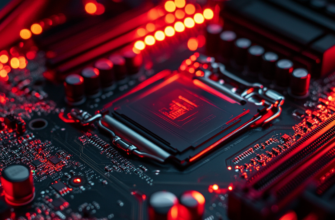“`html
- How to pick the perfect gaming headset: essential tips and factors
- Why picking the right gaming headset matters
- Main criteria to consider when choosing a gaming headset
- 1. Sound quality
- 2. Comfort and build quality
- 3. Microphone performance
- 4. Connectivity: wired or wireless?
- 5. Platform compatibility
- 6. Price range: plan your budget
- Pro tips for the best gaming headset experience
- Conclusion: Make your choice wisely!
How to pick the perfect gaming headset: essential tips and factors
Hey there, my fellow gamers! If you’ve ever found yourself in the midst of a heated match, unable to hear your teammates or, worse, struggling to catch the subtle audio cues from the game—well, I’ve been there too, and it’s not fun. The right gaming headset can mean the difference between victory and despair. But how do you choose the perfect one, with so many options on the market? Worry not, my friend! In this guide, I’ll walk you through everything you need to know to pick the ideal gaming headset for your style, preferences, and budget.
Why picking the right gaming headset matters
Before we dive in, let me explain why this is such a big deal. First off, gaming these days isn’t only about graphics. We gamers are after complete immersion, and that means sound design plays a huge role. Whether you’re dodging enemy fire in an FPS, exploring dynamic open-world environments, or coordinating strategy with your squad, your headset is your gateway to the full audio experience. Not to mention, a good gaming headset can save you the pain of buying multiple replacements, as investing in the right one today can last you for years.
Main criteria to consider when choosing a gaming headset
Let’s break down the main things you should focus on when hunting for that perfect headset. We’ll cover everything from sound quality and comfort to microphone performance and extra features. By the end of this article, you’ll feel confident in making the best choice for your gaming rig.
1. Sound quality
Obviously, sound quality is key when you’re looking for a gaming headset. But wait! Sound isn’t just sound, right? Different headsets offer different experiences based on the way they reproduce audio.
- Stereo sound: Most budget headsets offer stereo sound, which works fine for casual gaming but can lack the depth needed for more immersive experiences.
- Virtual or true surround sound (5.1 or 7.1): For more advanced gaming, especially in competitive games where hearing that sneaky enemy behind you is crucial, you’ll want a headset offering some form of surround sound. Virtual 7.1 surround sound, typically offered in higher-end models, can help provide directional audio that makes you feel like you’re inside the game.
- Drivers: Pay attention to the driver size—bigger usually means better, fuller sound. Most solid gaming headsets come with around 40-50mm drivers, which should give you that bassy and powerful sound conducive to thrilling gaming experiences.
2. Comfort and build quality
When you’re gaming for hours (known as “gaming marathons,” am I right?), comfort is king. Here’s what to check:
- Weight and padding: Look for a lightweight headset with plenty of cushion, especially in the ear cups and headband. Memory foam padding can be a lifesaver in long sessions.
- Adjustability: We all have different head shapes, so your headset should be highly adjustable—both in how it fits over your ears and how it sits on your head. Check for headbands that expand and straps that give you customizable height.
- Material: Metal frames tend to last longer and withstand more abuse, but they can also be heavier, while plastic frames are lightweight but can break more easily. It’s all about finding a balance here.
3. Microphone performance
If you play multiplayer games, a good microphone is non-negotiable. Here’s what you need to focus on:
- Noise-canceling mic: Make sure your microphone comes with some type of noise cancellation or noise isolation. This will minimize background noise and help your voice come through clearly to your teammates.
- Detachable or retractable?: A detachable mic is great if you want the flexibility of using your headset for non-gaming purposes (like listening to music). Some headsets also have a mic that can be easily muted or flipped up when not in use, which offers convenience during gameplay.
- Communication quality: Look for headsets with high-quality mics that transmit your voice with clarity. Check reviews to ensure there’s no weird muffling or distortion.
4. Connectivity: wired or wireless?
This can be a matter of personal preference, but here’s the lowdown on both options:
- Wired headsets: Wired options guarantee a stable connection, no battery issues, and usually better sound quality for the price. However, the cable can sometimes get in the way during long gaming sessions.
- Wireless headsets: Wireless headsets provide more freedom (no cables!) but bear in mind that they can suffer from connectivity issues like interference or signal dropouts, and you’ll need to charge them regularly. If you go wireless, look for models with a strong signal range (2.4GHz wireless or bluetooth) and a long battery life (at least 15-20 hours).
5. Platform compatibility
Ensure the headset you choose works with your gaming setup. While many gaming headsets are cross-compatible with PC, consoles, and mobile, some are specifically designed for one platform. Double-check what platform you primarily game on and look for headsets that support it natively without extra adapters. If you’re a multi-platform gamer, a universal headset can save you a lot of hassle.
6. Price range: plan your budget
As with anything in gaming, headsets come at all price points, and it’s super easy to get overwhelmed by options. While it’s tempting to go for the cheapest option, you’ll often get what you pay for. Here’s a handy breakdown of what you can typically expect:
Under $50: Basic stereo sound, usually wired, decent quality but minimal extra features. Perfect for casual players or those on a budget.
$50-$150: This is the sweet spot. You’ll find wireless models, virtual surround sound, and better mic quality. Most of the best headsets live in this price bracket.
$150 and above: High-end, premium audio quality with true surround sound, top-grade microphones, and luxurious build materials like memory foam ear cups or even full metal construction.
Pro tips for the best gaming headset experience
Now that we’ve covered all the essential criteria, let me leave you with some golden tips to improve your gaming headset experience even further.
- Break-in your headset: Just like a good pair of shoes, headsets can feel a bit stiff out of the box. Give them time to break in for maximum comfort.
- Keep your drivers updated: If you’re rolling with a wireless or USB-powered headset, make sure to keep the drivers up-to-date for top-notch performance and compatibility.
- EQ Settings: Tweak the equalizer settings in your PC’s sound settings or through gaming headset software to match the genre you’re playing. FPS games often benefit from increased mids to clearly hear footsteps, while MMO games might call for more bass to liven up the ambiance.
- Take care of the headset: Simple but effective advice—maintaining your headset can extend its lifespan. Store it properly, clean the ear pads if they’re washable, and try not to twist the cables.
Conclusion: Make your choice wisely!
So, there you have it! Choosing the right gaming headset might seem daunting with all the options available, but as long as you focus on sound quality, comfort, microphone clarity, and your preferred connection type, you’ll have no issues finding your perfect match. And trust me, the improvement you’ll experience in both immersion and communication will make every single gameplay session feel brand new.
What’s your go-to headset for gaming, and why do you love it? Let me know in the comments below! And remember: a great gaming headset turns every deathmatch, raid, or fantasy RPG dungeon crawl into an epic adventure.
“`

















